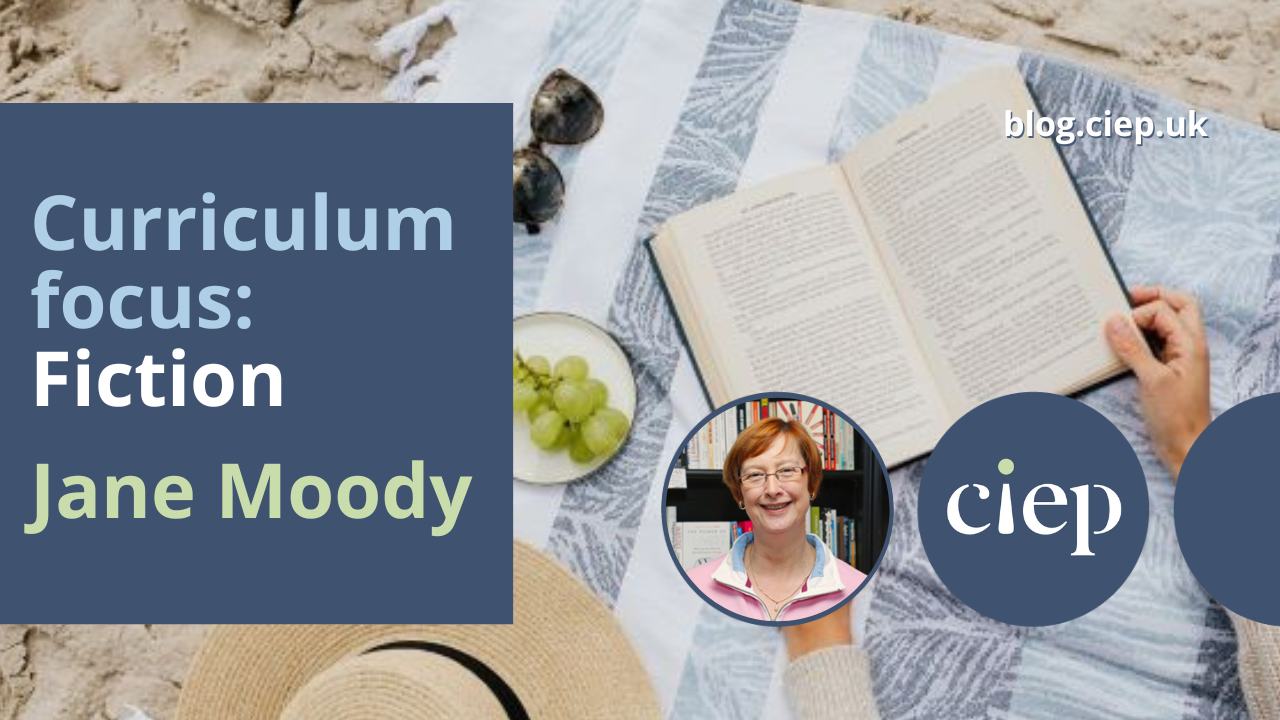In this regular feature for The Edit, former training director Jane Moody shines a light on an area of the CIEP’s Curriculum for professional development.
Fiction editors use all the same tools as every other kind of editor, but there is an extra dimension to this particular type of work. For this reason, we include fiction as one of the specialist areas, with its own set of competencies. Its main knowledge criteria are: 1. Liaison with the author; 2. Assessment of the manuscript and brief; 3. Structural editing; and 4. Line editing.
The table gives details about the competencies, skills and attitudes that you should be able to evidence under each of the criteria. I’ve listed our suggested supporting resources under the table.
| KNOWLEDGE CRITERIA | EDITORIAL COMPETENCIES, PROFESSIONAL SKILLS AND ATTITUDES |
|---|---|
| 3.1.1 Liaison with author | • Understands the importance of being sensitive to the author’s words, creations and intentions and not discounting elements of the work out of hand or imposing the editor’s own viewpoint on the material |
| 3.1.2 Assessment of the manuscript and brief | • Has the ability to assess a manuscript and agree a brief |
| 3.1.3 Structural editing | • Understands the principles of structural editing: detailed analysis of the text, advising the author of any structural or major changes required • Can identify and analyse themes and plot types; author’s voice and style; different points of view; dialogue; consistency of plot, timeline and setting, character, language |
| 3.1.4 Line editing | • Understands the principles of line editing and advising the author of any textual inconsistencies, contradictions and anomalies within the text |
Resources to support your learning and CPD
Courses
The CIEP’s Introduction to Fiction Editing is a good start. Another introductory course is Louise Harnby’s Switching to Fiction.
Louise’s course How to Write the Perfect Editorial Report and the following courses by Sophie Playle offer more specialised training:
- Tea and Commas: The Foundations of Line and Copy-Editing Fiction
- Developmental Editing: Fiction Theory
- Developmental Editing in Practice
Books, guides and general resources
The CIEP’s guides Getting Started in Fiction Editing by Katherine Trail and Editing Fiction Containing Gender-Neutral Pronouns by Louise Harnby are free in PDF format for CIEP members. Louise’s books Editing Fiction at Sentence Level and Making Sense of ‘Show, Don’t Tell’ support more specific aspects of editing fiction. These books are part of Louise’s fiction editing resource library, which also contains free articles, booklets and webinars as well as paid content. You can find more books in the Recommended reference books and resources on the CIEP website.
Blogs
Two fiction-based blogs to support your CPD are from Sophie Playle and Emma Darwin, but there are many other well-respected blogs out there. Take note of what your editing colleagues share and recommend.
About Jane Moody
Jane has worked with books for all her working life (which is rather more years than she cares to admit), having started life as a librarian. She started a freelance editing business while at home with her two children, which she maintained for 15 years before going back into full-time employment as head of publishing for a medical Royal College.
Now retired, she has resurrected her editorial business, but has less time for work these days as she spends much time with her four grandchildren and in her garden.
 About the CIEP
About the CIEP
The Chartered Institute of Editing and Proofreading (CIEP) is a non-profit body promoting excellence in English language editing. We set and demonstrate editorial standards, and we are a community, training hub and support network for editorial professionals – the people who work to make text accurate, clear and fit for purpose.
Find out more about:
Photo credits: beach by Karolina Grabowska on Pexels.
Posted by Harriet Power, CIEP information commissioning editor.
The views expressed here do not necessarily reflect those of the CIEP.

